Paralegal career advice
Prospects
It is a good time to be thinking about entering the paralegal profession and becoming a professional legal practitioner. The paralegal profession is one of the fastest growing in the country and right now thousands of paralegal vacancies are being advertised on the internet. Check our Jobs Board, powered by TotallyLegal here.
How to become a paralegal
Be wary of anyone telling you that you must do training before you can become a paralegal. This is incorrect. The paralegal profession is mostly unregulated and therefore you become a paralegal simply by getting a job as a paralegal. There is no qualification you need to have first, nor course you must take - you do not even need to be a member of the Institute of Paralegals (although we highly recommended membership if you are serious about being a professional paralegal and having a career in the law).
What employers want
First and foremost employers want people with some relevant prior experience. This is because experienced people need less training and can begin handling cases quicker. In lieu of experience then preference is usually given to those with relevant practical training that taught them how to actually do the job they have been hired for (as opposed to “irrelevant” training which is training in the practice and procedure of different areas of law, and theoretical, academic training which cannot be applied to the workplace very easily).
So although you are not obliged to do any legal training, and can apply for entry-level jobs right now, doing the right legal course should considerably increase your chances of getting an entry-level paralegal job.
Please note we say “should increase your chances” not “definitely will increase your chances”. Again, contrary to what some course providers will tell you, there are no courses which will guarantee you a job as a paralegal. What you are doing is increasing your chances of success.
Work out what area of practice interests you
Paralegals tend to specialise in one area of practice. The main areas of paralegals work in solicitors’ firms are:
Civil Litigation
Commercial Property
Company Law
Debt Recovery
Employment Law
Family Law
Personal Injury
Residential Conveyancing
Wills and Probate
The job of a paralegal differs dramatically depending on the practice area. A residential conveyancing paralegal will rarely have face-to-face contact with clients, and will constantly be working to immovable deadlines. A paralegal handling probate matters will mostly have a desk-bound job. A paralegal doing criminal law work may find himself/herself regularly attending police stations and courts.
Because the jobs are very different, it is important that you do some research first to see which area interests you, and whether you have the aptitude for it.
Since the jobs are so different, it follows that anyone sending in an application to a law firm just asking for any vacancy as a paralegal doing any type of law will not impress. Also, individual departments within solicitors’ firms are often run autonomously, and so the hiring decision will lie with the head of department and not the senior or managing partner of the entire firm. Smart applicants work out what area of law they want to work in and then identify solicitors’ firms doing that type of law, and write direct to the relevant head of department.
Do a good practical course in your chosen practice area
It also follows from the above that if you do want to do a training course, you need to do one in the relevant practice area. Doing a course on probate law, no matter how good, will not impress people if you start applying for jobs as a debt recovery paralegal!
The only type of training that solicitors’ firms really value is practical training which gives you the knowledge and skills that you would have gained from practical experience – i.e. the skills they need you to have on a daily basis.
Paralegals are “doers” – they advise suspects in criminal matters; they incorporate companies; they complete and submit very important official documentation; and they interview witnesses to get essential information. Generally speaking none of these things are taught on academic courses such as law degrees, Masters Degrees and the Graduate
Diploma in Law. Accordingly, do not be surprised if your academic qualifications do not overly impress, regardless of how excellent they are. Employers would rather you did a vocational course that taught the practice and procedure of one area in detail. Accordingly watch out for courses that spend a week or even less introducing you to “the law/paralegal practice”. They are generally not worth the money if you are doing them to try and improve your chances of employability.
So if you do wish to do a course, which one would we recommend? We do not offer training ourselves for the time being. However this does allow us to review the courses on offer from various providers and recommend the best.
Recommended courses
Specialist Paralegal Qualifications run by Central Law Training.
There are 13 different courses leading to a Diploma from the University of the Law. You can find full details about them here.
The main features are ● nationally recognised university law school qualification ● run as home-learning so you can take a course wherever you live ● study at times to suit you ● progress at the pace you are comfortable with ● tutor support is provided ● approximately 12-18 months’ to complete ● assumes some prior legal knowledge on your part ● SPQ qualifications are designated as “Mandatory Courses”, which means that you would have to take one of them if you ultimately want to progress to becoming a Qualified Paralegal with the Institute of Paralegals.
NB: You do not have to wait until you have completed any of the above courses before applying for jobs. The very fact that you are studying one of them will be of value (and speak volumes) to prospective employers.
There are, of course, other providers on the market. You can view courses run by other providers at our website.
Join the Institute
There are many good reasons why you should apply to join the Institute today. However now the main benefit is that it will help you find work, because telling prospective employers that you are a member of the Institute signals to them that you are already on the paralegal career path and serious about being a professional paralegal.
Benefits of membership
Free careers advice
The Institute’s membership benefits scheme IOP Perks which could save you hundreds of pounds a year, if used regularly.
Digital certificates and Smart badges powerd by Accredible
Being part of a profession instead of just having an occupation
Receiving essential monthly information about what is happening in the paralegal world through receipt of The Paralegal – the e-newletter for the paralegal profession
Free reciprocal membership of the New York City Paralegal Association in the first year
As an IOP member you have the opportunity to be regulated by the Professional Paralegal Register and apply for a Practising Certificate.
Access to Newsstand – the Institute’s law and market update service powered by Lexology
Access to the IOP's Competency Standards for Paralegals
Obtaining a recognised professional designation (e.g. F.Inst.Pa)
Eligibility for membership of the Royal Overseas League club
Access to support services offered by LawCare
Access to template paralegal practice documents (e.g. sample engagement letter)
Formal right to countersign passport applications
Grades and cost
Membership costs:
Affiliate member: £65 for 12 months
Associate Paralegal: £98 for 12 months
Qualified Paralegal: £131 for 12 months
Fellow of the IOP: £164 for 12 months
For other fees incurred at the time of joining, please visit the membership fees page.
Which professional designation am I eligible to apply for?
Full details can be found on our website.
We appreciate it can be tricky to work out what membership grade is appropriate for you. We therefore warmly welcome enquiries. Tell us what legal work you have done (no problem if none) and any legal qualifications you have (no problem if none), when and where and we’ll be delighted to answer your questions.
Audit yourself against the IOP Competency Standards
Employers want much more from paralegals than just technical legal knowledge. They want others non-legal skills such as the ability to team work and having business awareness: many of which you no doubt already possess.
To receive a copy of the Competency Standards, please email [email protected] and we will send you one.
What many aspiring paralegals do is mark up the standards with the skills and knowledge they already possess and send a copy to prospective employers as this showcases their abilities in great detail. It also shows them as being well informed about the paralegal profession (i.e. that they know ahead of most new entrants that the standards exist).
Many paralegals already in work, give a copy to their employers and use it as a basis for discussions about career and training development.
Look beyond solicitors’ firms went job hunting
There are approx 40,000 paralegals working in solicitors’ firms, but perhaps four times that number working in other sectors of the economy: commerce and industry; central and local government; charities; the military; the not-for-profit sector etc.
There are also circa 6,000 paralegal law firms.
Paralegal jobs in these other sectors tend not to be called paralegals. They have numerous other titles: contracts manager, legal adviser, housing assistant, trademark clerk, manager etc.
Job titles are not important, look at the legal work the job vacancy entails.
Ultimately all that counts is that you have good-quality legal work experience. Nor does it matter to future employers whether you gained your experience through paid employment or voluntary work.
Amend your CV
Rewrite your CV so that for each entry it maps against either the IOP Competency Standards or the particular skills, knowledge and aptitude required of paralegals in the practice area in which you want to work. Do not assume that potential employers will bother to work that out themselves – they are usually too busy working through a mountain of applications!
Review what you can offer prospective employers
Many paralegals do specialist work for clients in a particular sector of the economy. If you have knowledge of that sector, or possibly even contacts within it, then that is valuable to prospective paralegal employers. If you have spent the past few years working in, say, the NHS then your knowledge of the NHS, its terminology, procedures, the hierarchy and operational challenges may well be very valuable to a solicitors’ firm acting for patients with claims against the NHS. Similarly if you were born overseas then your knowledge of the language, culture and business environment of your country of origin may be very useful to the legal department of a company doing business there or a law firm with clients there or doing business there.
Understand what is happening in the paralegal/legal world
If you are becoming a paralegal many employers will expect you to know what is happening in the legal and paralegal worlds – both are currently subject to great change. For example, did you know that paralegals can now be partners in solicitors’ firms?
Finding out about what is happening is very difficult as there are not many public sources of information. The best way to find out what is going on is to subscribe to the leading paralegal journal – The Paralegal - which is free and published monthly. Every issue has essential information for aspiring and practicing paralegals.
We hope this introductory careers advice information helps!



